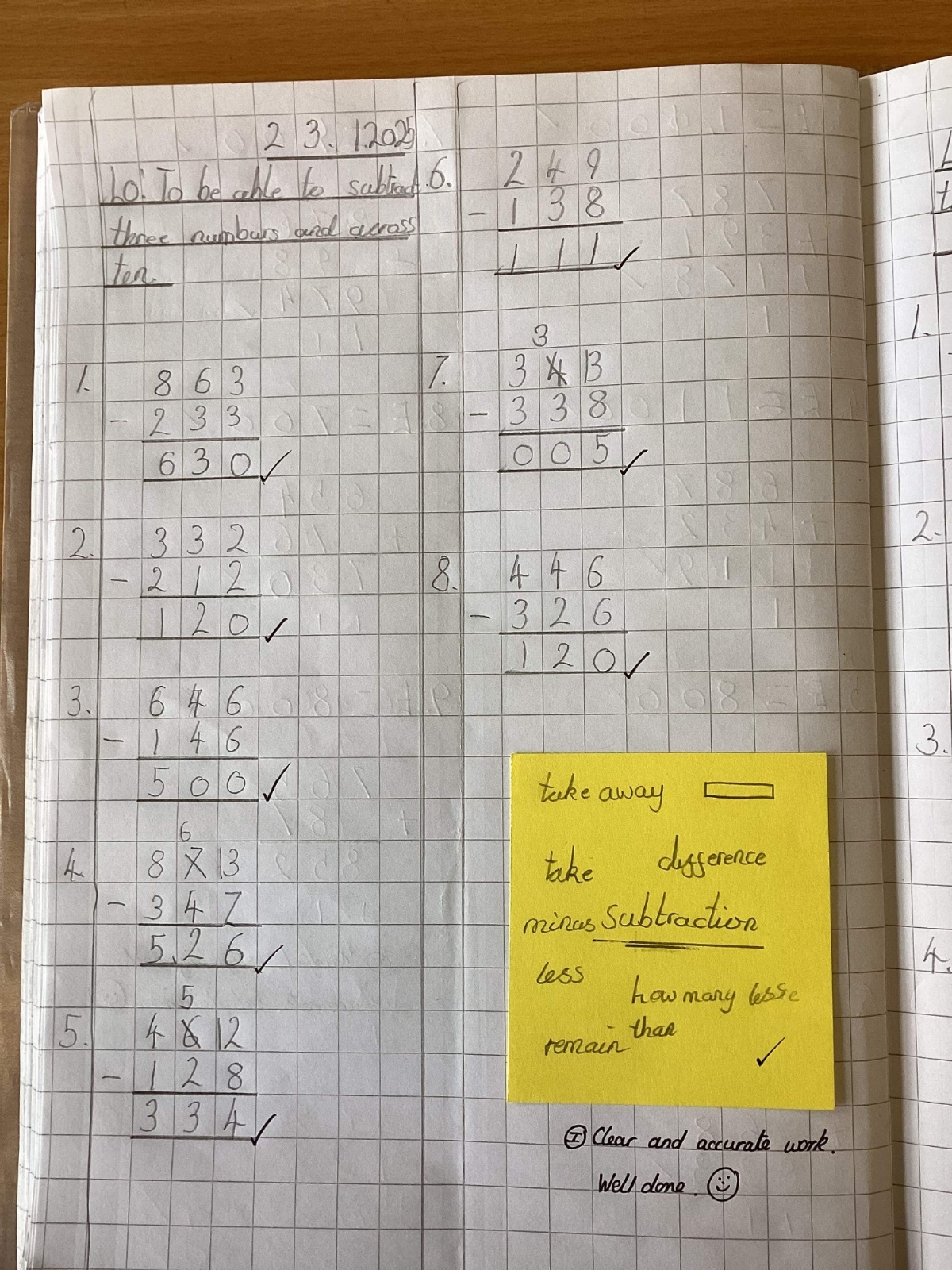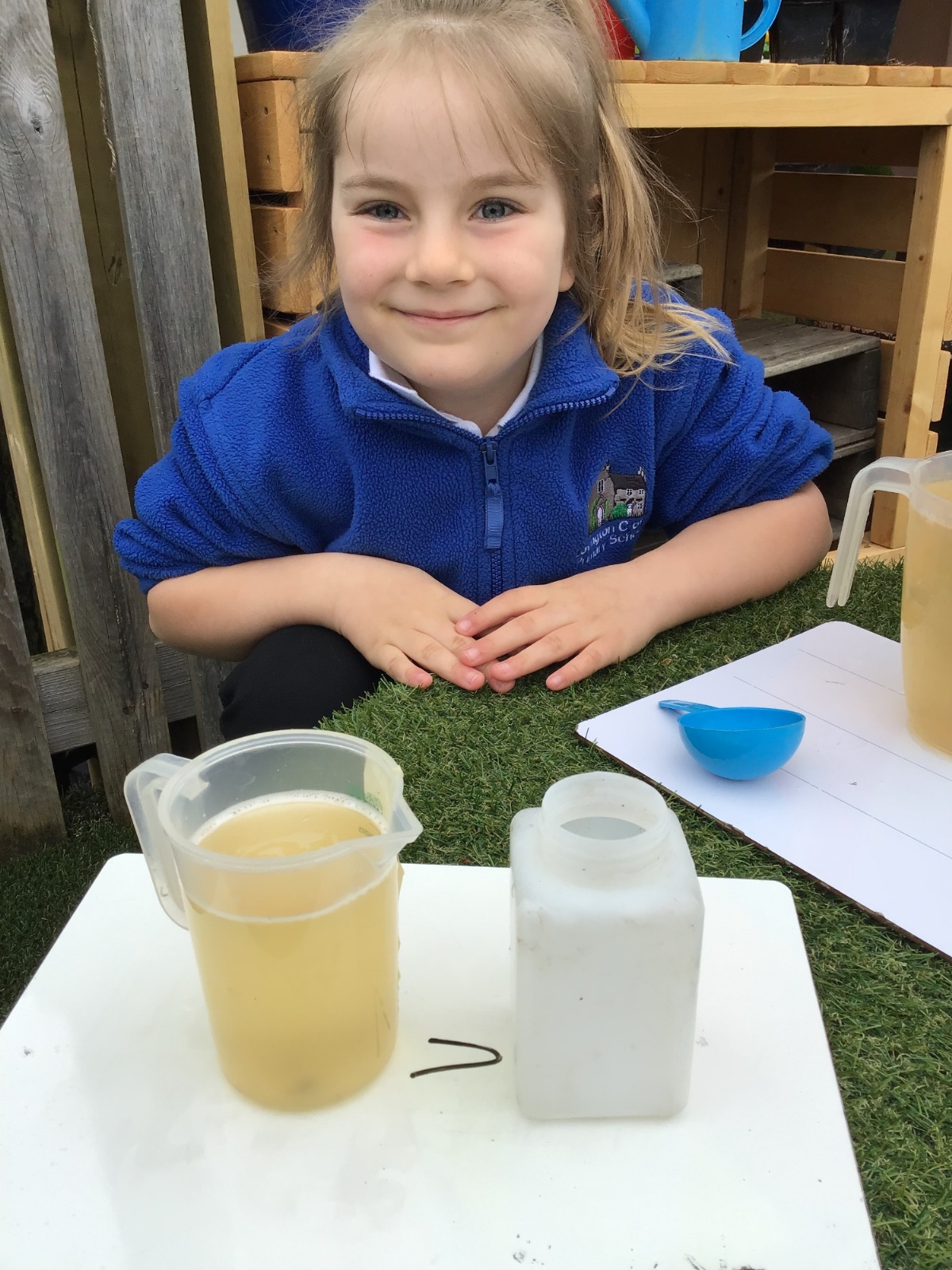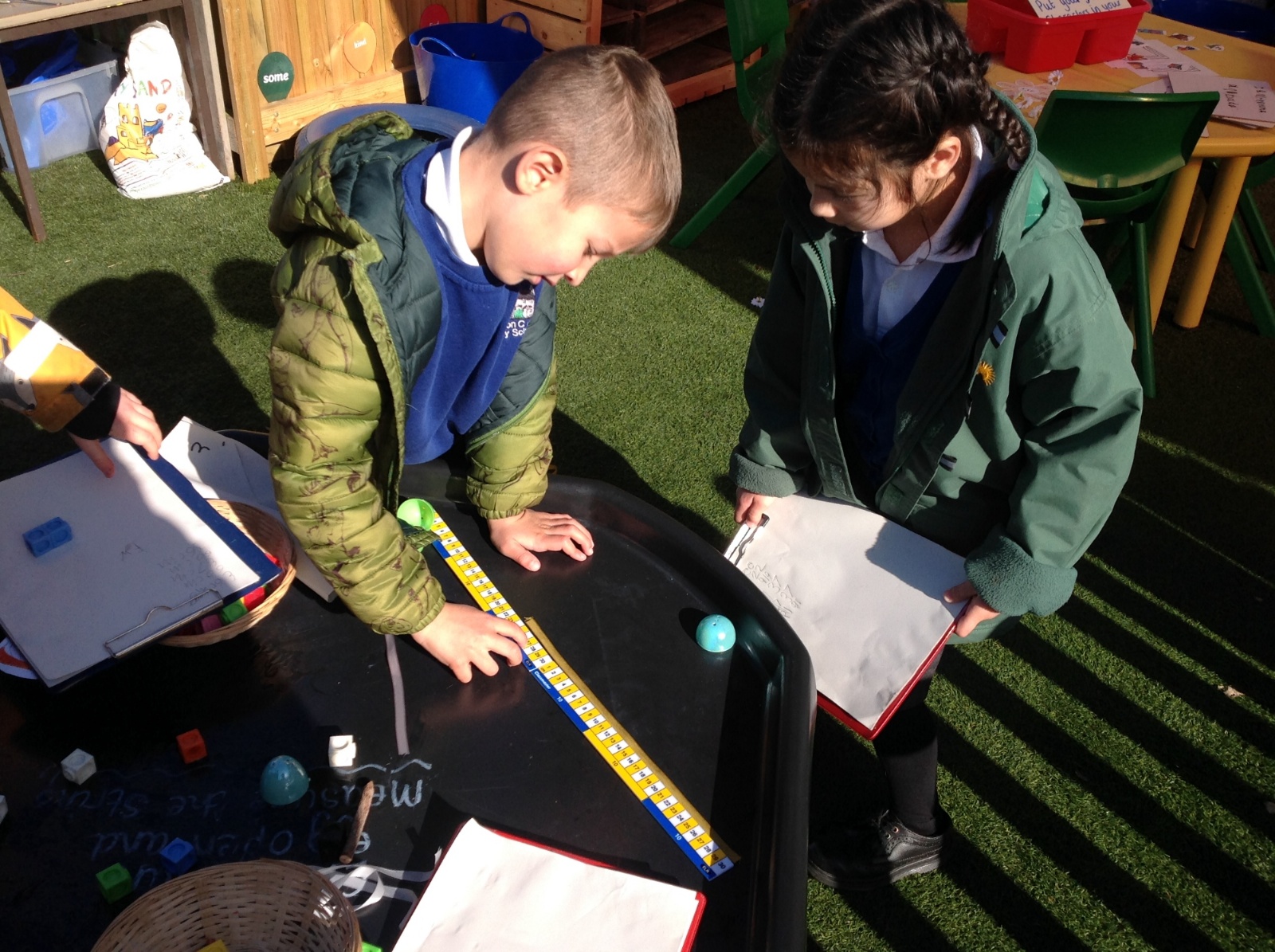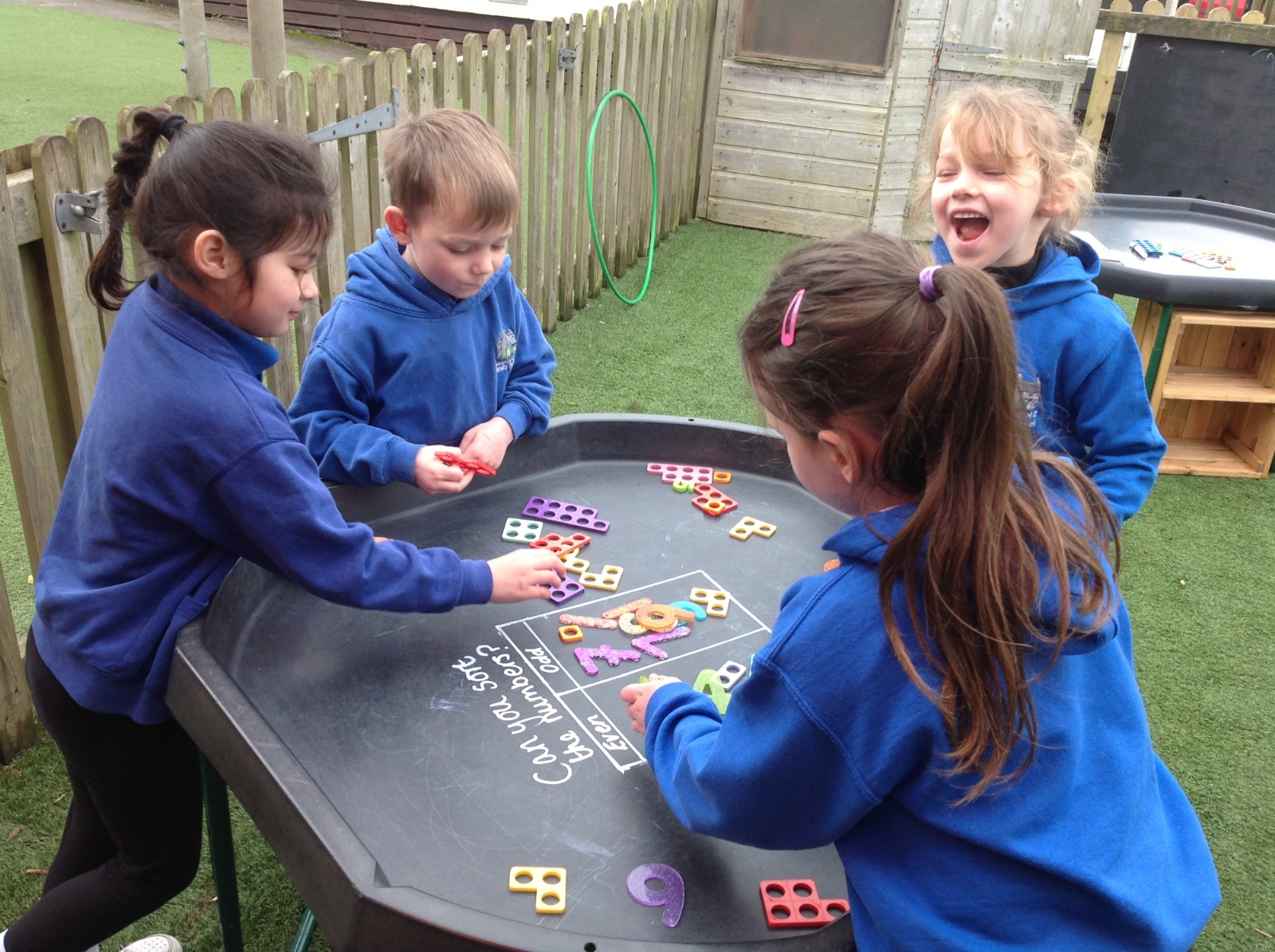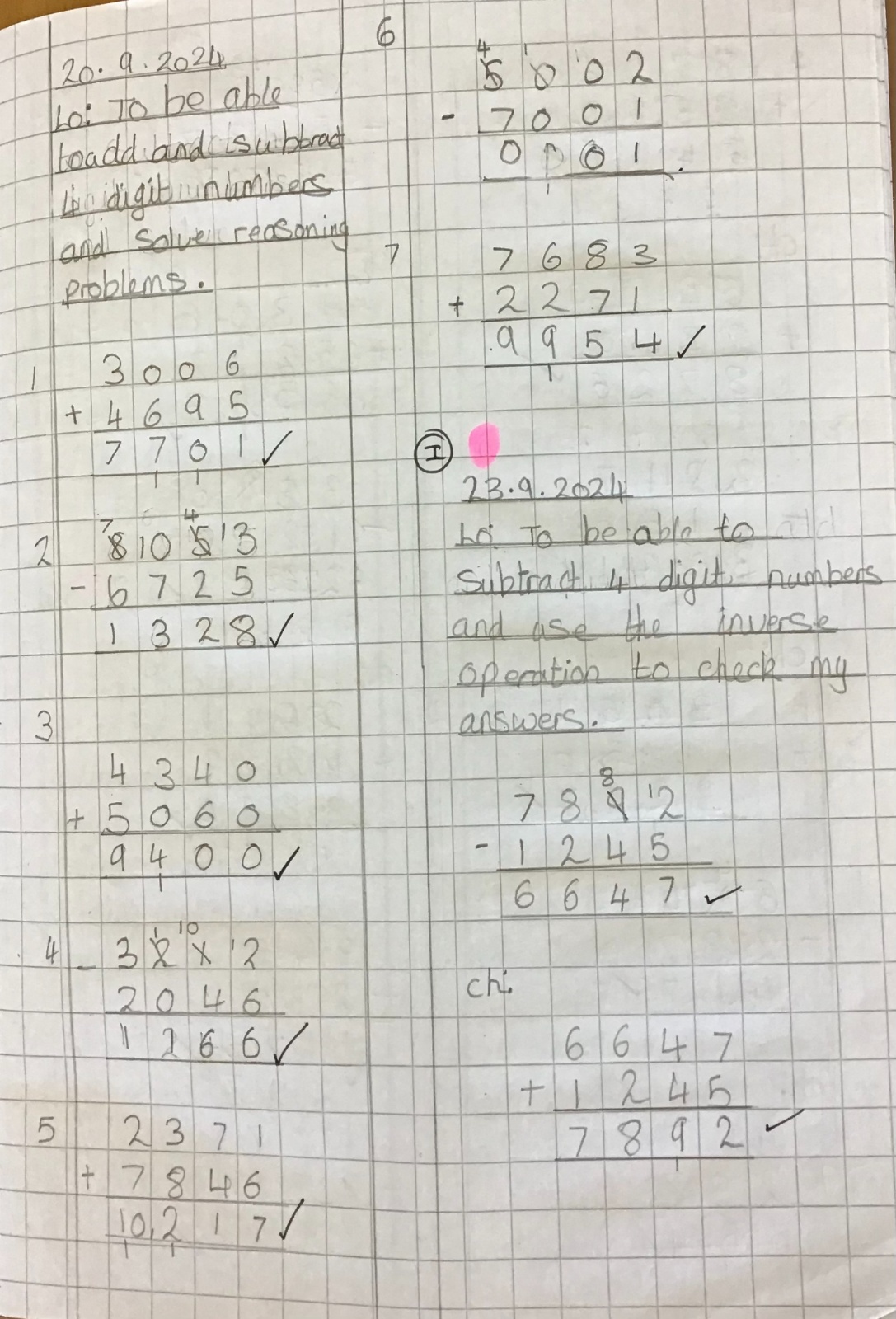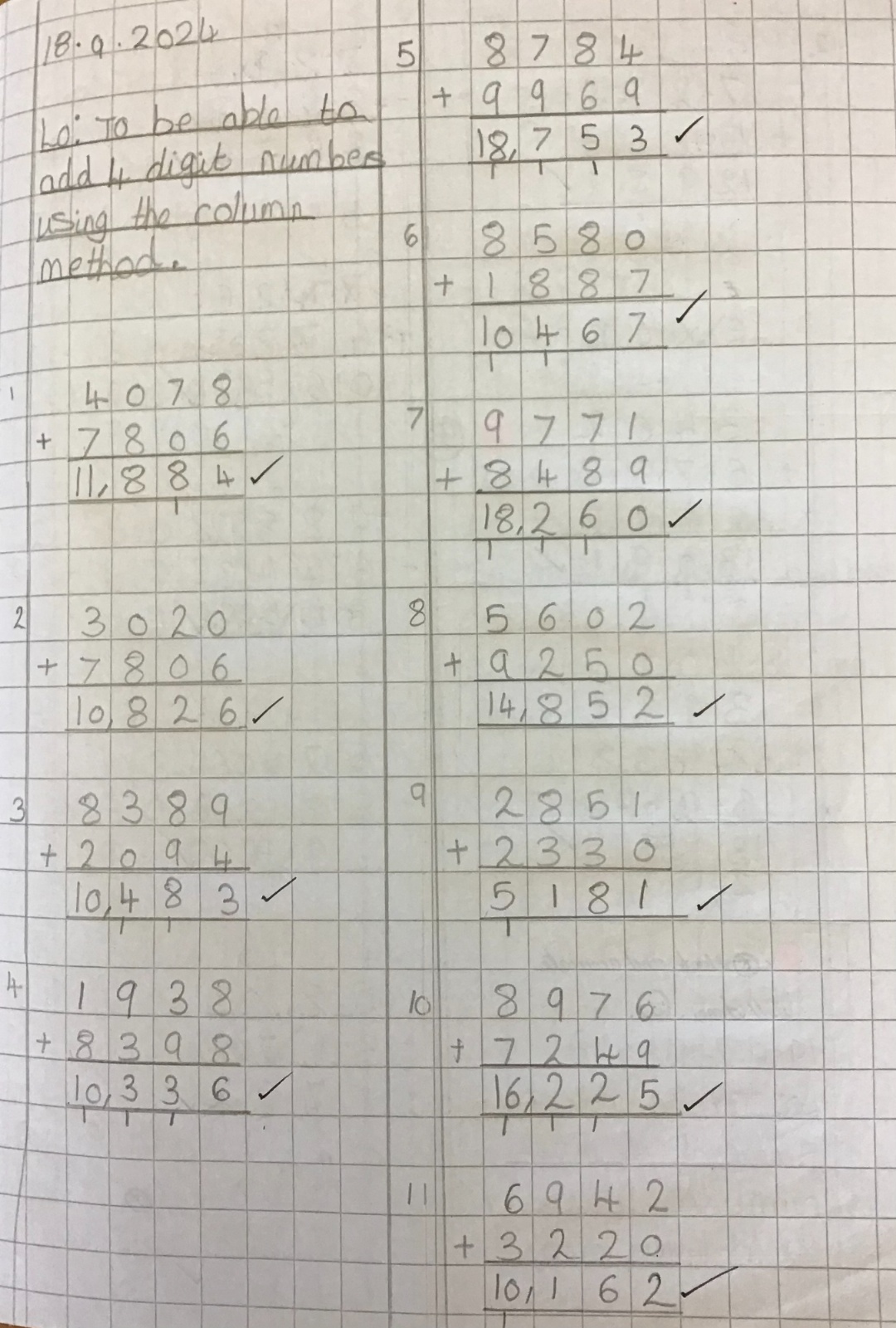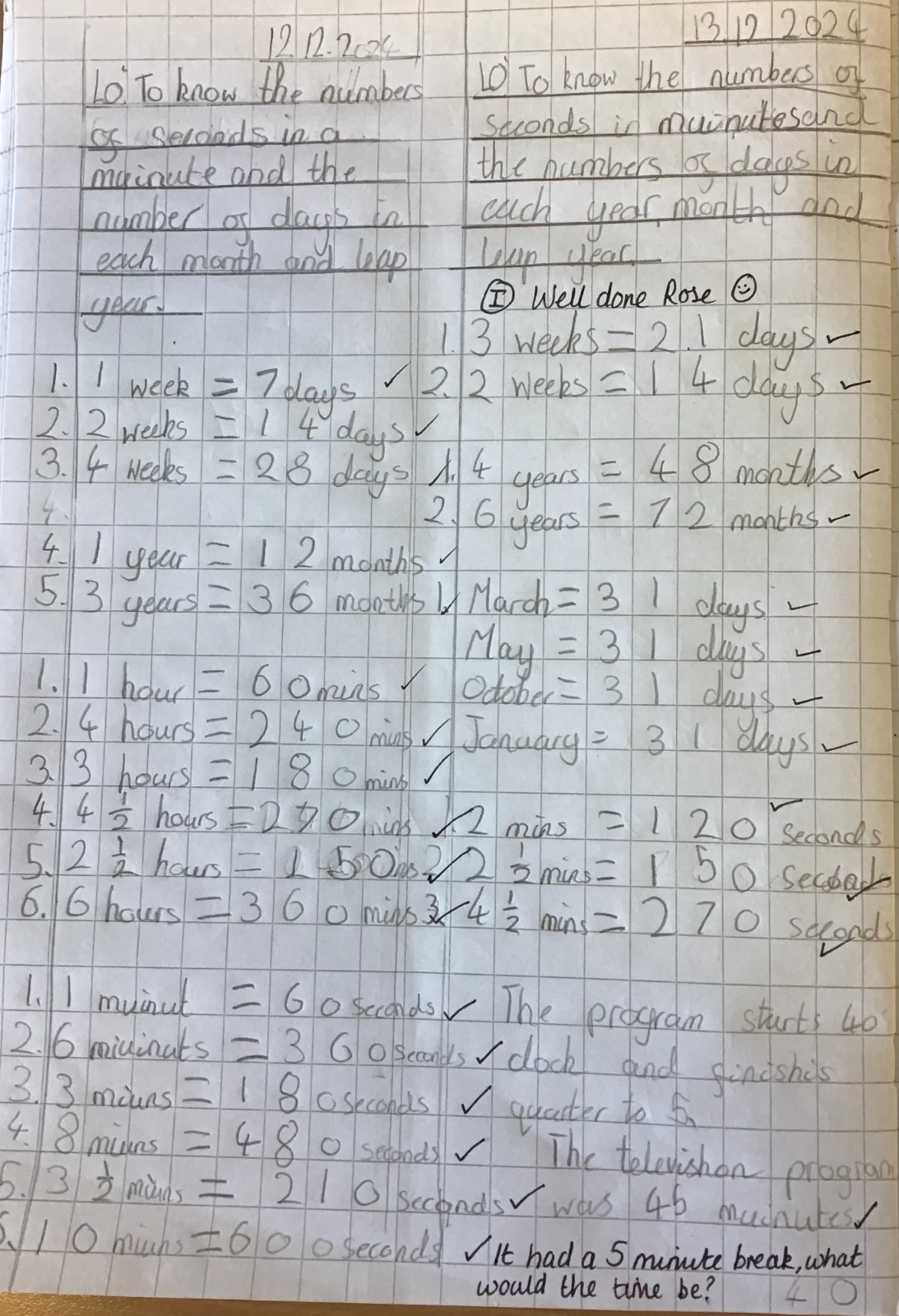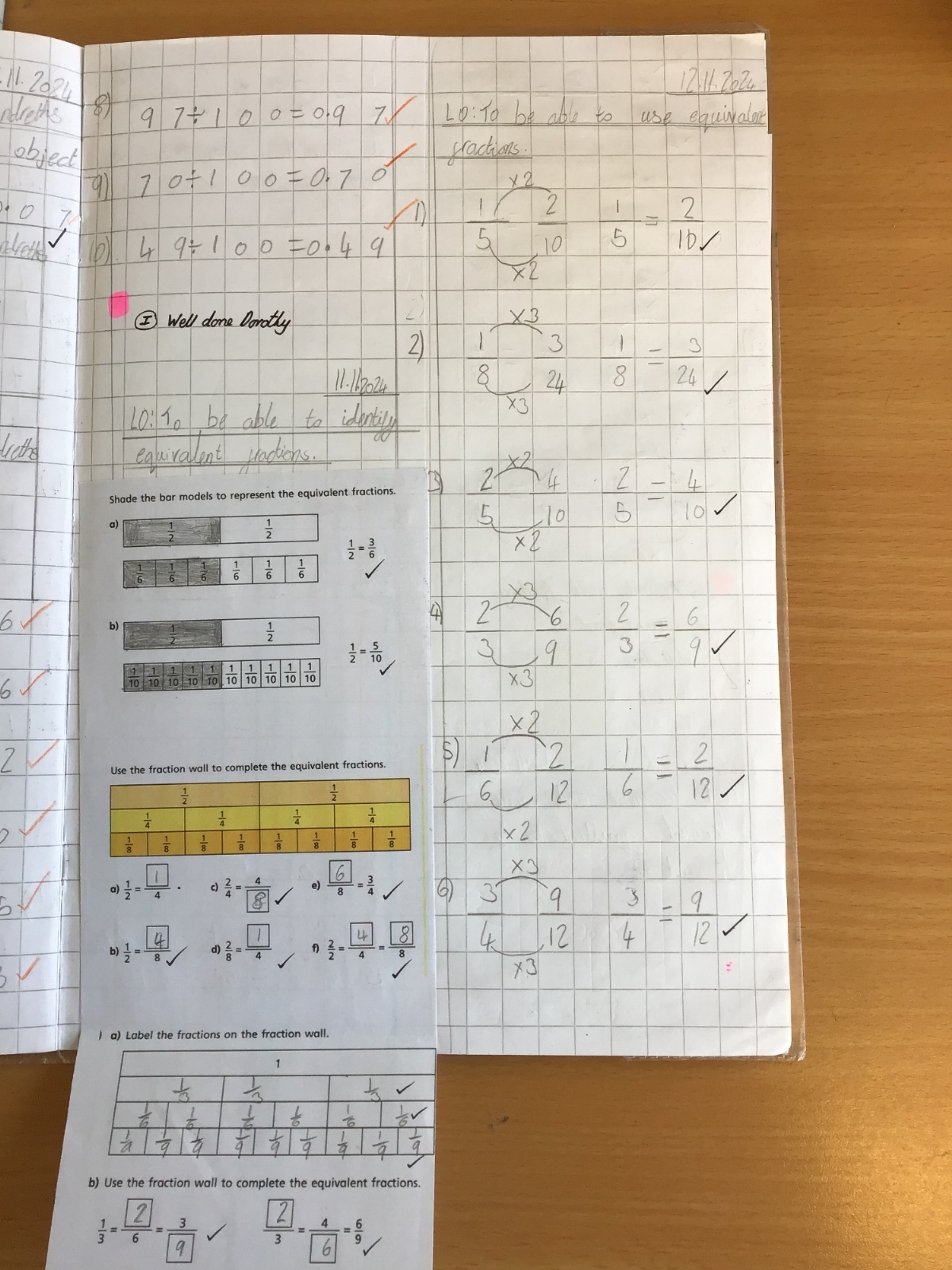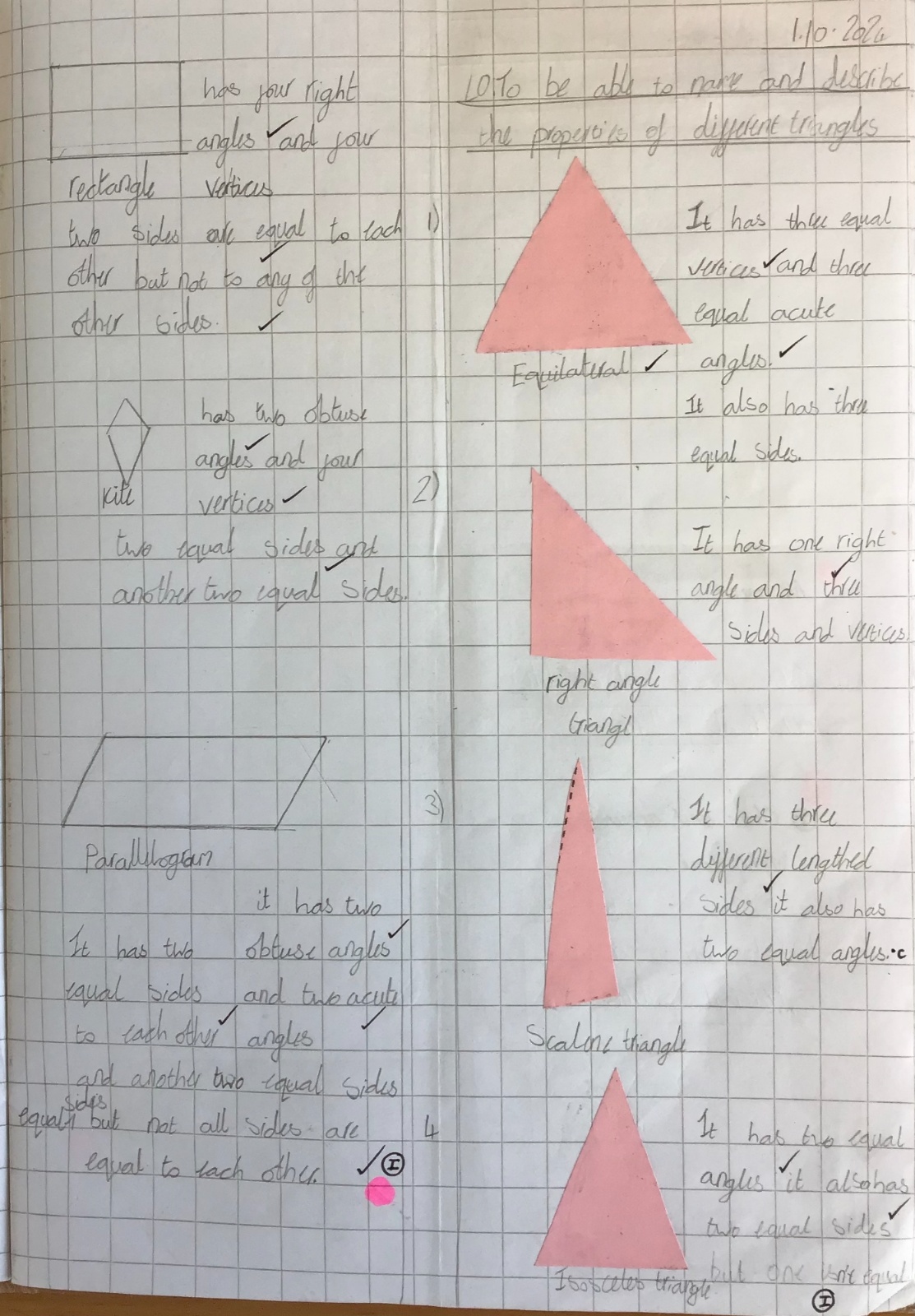Maths
Intent
Mathematics is an essential skill in our daily lives. In our school, mathematics plays an important part in our broad and balanced curriculum where we aim to create passionate and enthusiastic mathematicians who build life skills which can be used both now and in the future. To become confident mathematicians, children need to develop mathematical fluency which is needed to tackle all areas of maths, including problem solving and reasoning questions, and be able to know and use subject specific vocabulary.
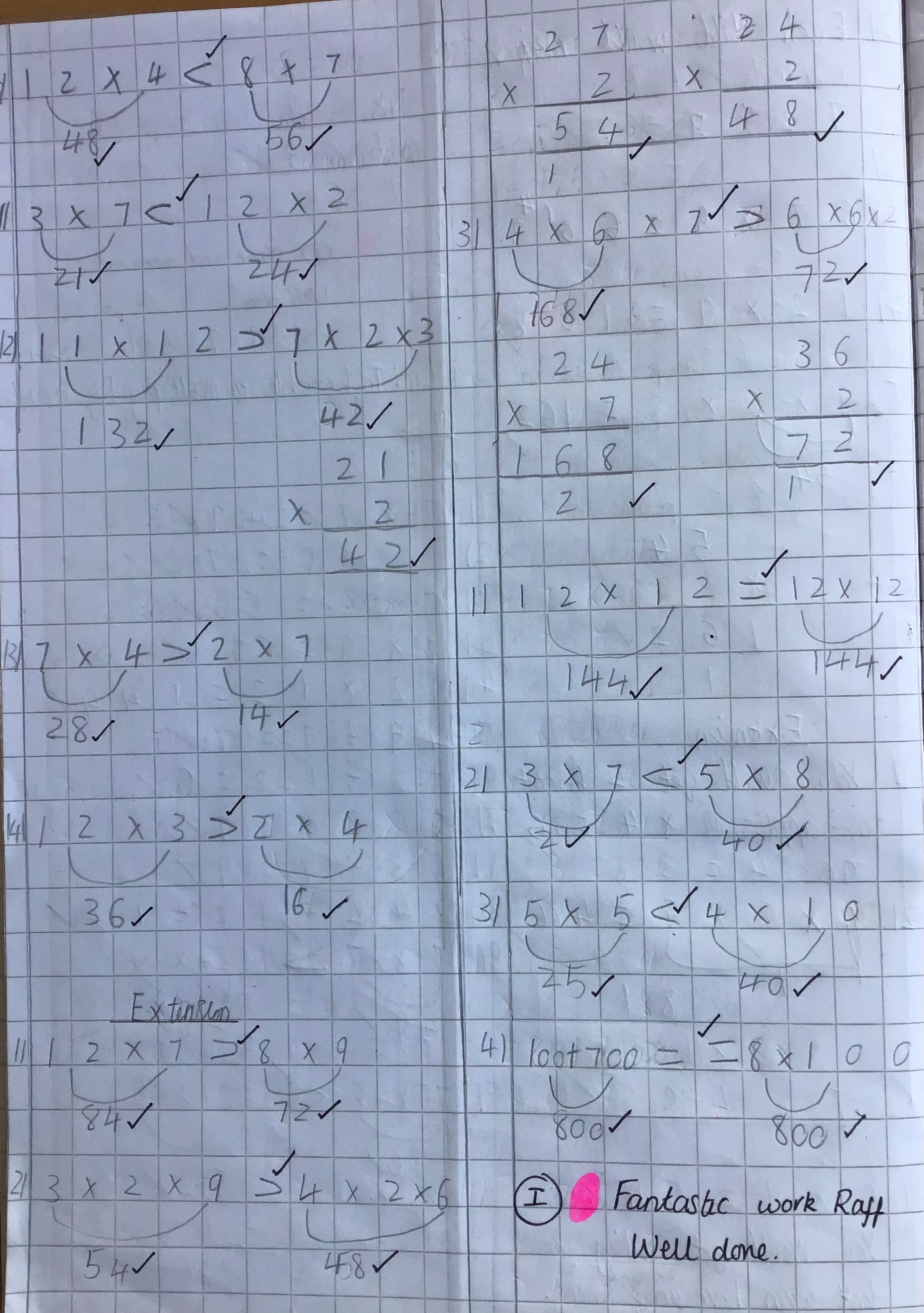
Implementation
In EYFS, children take part in teacher led lessons and are then exposed to continuous provision which links to their learning. In KS1 through to KS2, children receive daily lessons. In addition, children receive regular fluency sessions using ‘Mastering Number’ in EYFS and KS1 which focus on key skills like number bonds.
KS2 children receive regular fluency lessons focussing on key skills such as times tables and number facts as well as recapping mental strategies previously taught, building on their prior knowledge to ensure the skills are fully embedded.
Using the National Curriculum, we design our maths lessons to support children to perform and have success with simpler tasks before moving on to perform more complex tasks. Maths is taught in blocks, with place value being the starting point in all year groups, so children can develop an understanding of number which will enable them to unlock their ability to work through the other areas of maths (for example, addition and subtraction). Within each block, lessons are taught in small steps with the aim of building on pupils’ prior knowledge.
Throughout each block, children work on the National Curriculum objectives through fluency, problem solving and reasoning work which are intertwined into each small step. Teachers are given the autonomy to decide how much time is necessary for children to grasp each small step. Where children struggle to understand a specific concept or where errors indicate a misconception, further scaffolding through a timely 1 to 1 or small group intervention will be delivered. Where additional needs are identified, a suitable intervention (e.g. precision teaching) will be implemented.
Impact
Regular Assessment for learning alongside formal assessments at the end of each term will ensure that
- Children will have the confidence to answer fluency questions using taught skills.
- Children will attain in line with national averages data or better.
- Children can talk about Maths confidently and rise to the challenge of every problem.
- Children will have a secure knowledge of mathematics that adequately prepares them for their next stage of learning.
- Children will recognise and use a wide range of Mathematical vocabulary.

